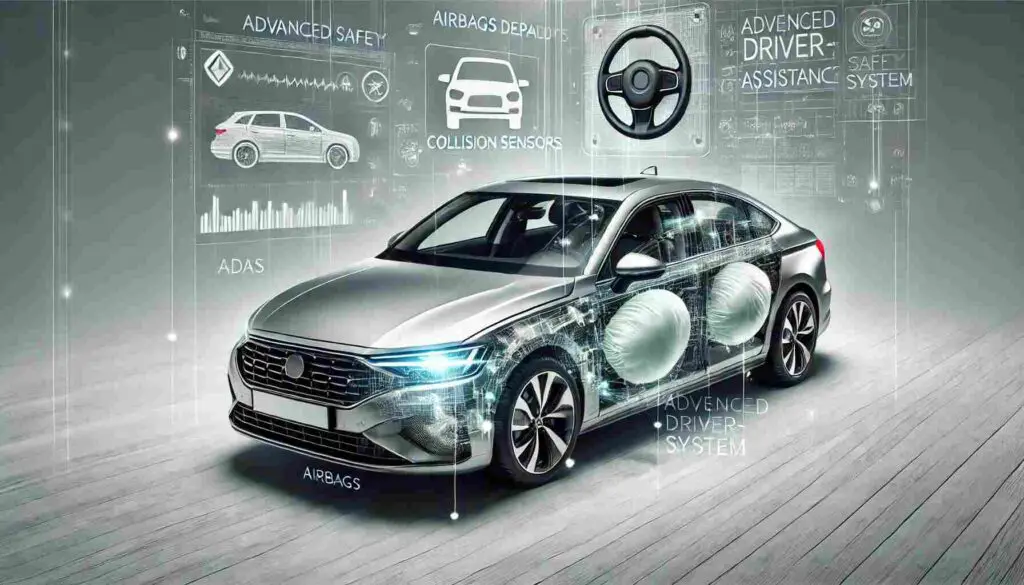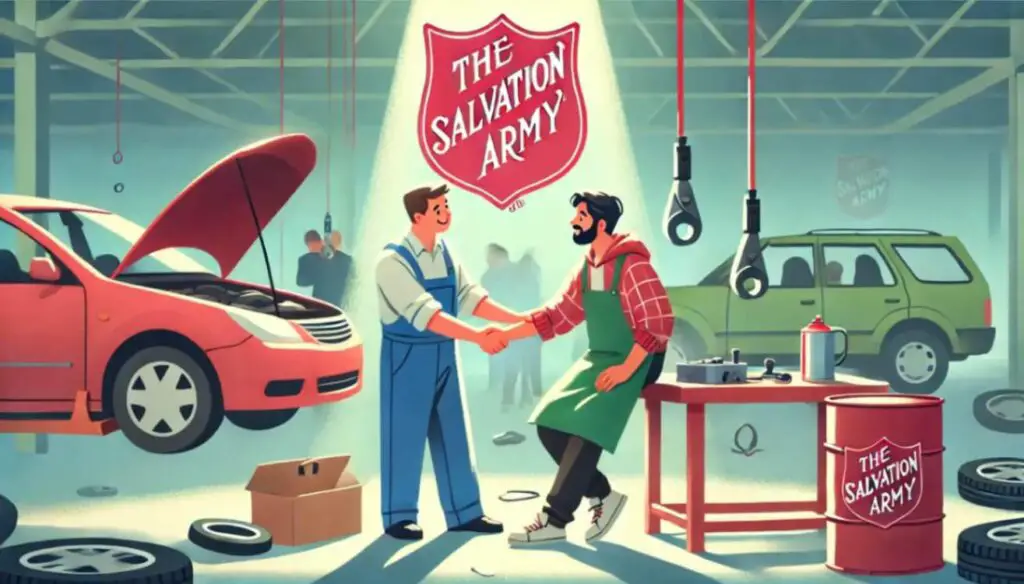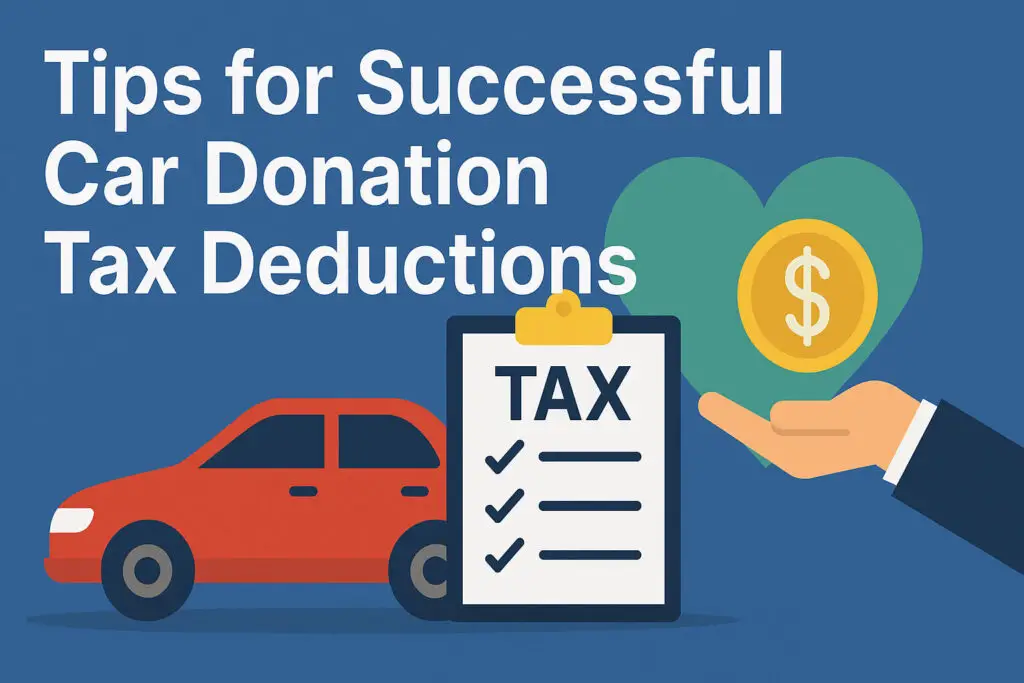In today’s fast-paced world, access to reliable transportation is essential. For low-income families in San Diego, the challenges of finding affordable transportation solutions can be overwhelming. However, there are numerous programs and resources available to help alleviate this burden. In this comprehensive guide, we will explore various avenues that can assist low-income families in San Diego in securing affordable transportation, thereby enhancing their mobility, independence, and overall quality of life.
The Challenge of Free Cars
Acquiring a free car may appear to be an elusive dream, especially for low-income families in San Diego who are already grappling with financial constraints. While it is undeniably a challenging endeavor, it is not entirely impossible. In this section, we will delve into the intricacies of the quest for free cars in San Diego, exploring the factors that make it a daunting but not unattainable goal.
Rare Opportunities
First and foremost, it’s crucial to understand that opportunities to secure a free car in San Diego are indeed rare. These opportunities arise under exceptional circumstances and are typically made available through nonprofit organizations that operate on the generosity of individuals and businesses within the community.
Nonprofit Organizations as Beacons of Hope
The primary source of free cars for low-income families in San Diego is nonprofit organizations. These organizations play a pivotal role in identifying families facing dire transportation challenges and endeavor to address their needs through acts of philanthropy. Here’s how these organizations function in this context:
1. Generous Donations
Nonprofit organizations that provide free cars heavily rely on generous donations from individuals, local businesses, and even corporations. These donations include both monetary contributions and the donation of used vehicles. Donors who recognize the significance of reliable transportation often contribute to these causes as part of their commitment to the community’s welfare.
2. Exceptional Circumstances
These organizations carefully assess applicants’ circumstances to ensure that the donated cars are allocated to individuals and families who truly need them. Common criteria for eligibility include:
- Financial Hardship: Applicants must demonstrate that they are facing significant financial difficulties that hinder their ability to afford a vehicle.
- Unique Needs: Special consideration may be given to individuals with specific needs, such as medical appointments, work-related commutes, or family responsibilities that require reliable transportation.
- Positive Impact: Organizations prioritize individuals who can demonstrate how having a car will positively impact their lives and enable them to overcome obstacles or pursue opportunities that would otherwise be out of reach.
3. Transparent Selection Process
To maintain transparency and fairness, nonprofit organizations typically establish a rigorous selection process. This process involves verifying applicants’ financial situations, assessing their needs, and conducting interviews or evaluations to determine the most deserving recipients.
4. Limited Availability
Due to the limited number of donated vehicles and the high demand from low-income families, these opportunities remain scarce. As a result, nonprofit organizations must carefully allocate their resources to make the most significant impact possible.
The Role of Community
Community engagement and support are crucial factors in the availability of free cars for low-income families in San Diego. Communities that recognize the value of reliable transportation often come together to support local nonprofit organizations. Individuals, businesses, and community leaders may collaborate to organize donation drives, fundraising events, or vehicle giveaways to ensure that those in need have access to transportation solutions.
In conclusion, while the quest for free cars in San Diego is undoubtedly challenging, it is not an unattainable dream. Nonprofit organizations, fueled by the generosity of donors and the commitment of the community, serve as beacons of hope for low-income families facing transportation hardships. These organizations carefully assess applicants, prioritize exceptional circumstances, and work diligently to ensure that donated vehicles go to those who need them the most. While opportunities are limited, the resilience and compassion of San Diego’s community continue to make a significant difference in the lives of those seeking reliable transportation.
Car Ownership Assistance Programs
Low-income families in San Diego have access to a wealth of additional resources beyond car ownership assistance programs. These resources are vital in helping individuals and families navigate the challenges of transportation and overall well-being. In this section, we will explore some of these invaluable resources.
San Diego County Assistance Programs
The San Diego County Health and Human Services Agency plays a crucial role in supporting low-income families in the region. They offer a variety of programs, including:
CalWORKs (California Work Opportunity and Responsibility to Kids)
CalWORKs is a statewide program aimed at providing financial assistance and employment services to eligible families with children. It helps families meet their basic needs while encouraging self-sufficiency through employment opportunities and job training.
Family Preservation Services
Family Preservation Services provide support and interventions to help families facing crises or challenges that could lead to the separation of children from their parents. These services aim to strengthen family bonds and create a safe and nurturing environment for children.
Car Repair Assistance and Transportation Vouchers
In some cases, low-income families may find themselves in a situation where their vehicle requires repair, or they need assistance with transportation costs. The San Diego County may step in to offer car repair assistance or transportation vouchers. These services can be a lifeline, allowing individuals to access essential services, medical appointments, and employment opportunities without the financial burden of car ownership.
211 San Diego
211 San Diego is a free and confidential service that acts as a comprehensive resource hub for individuals seeking assistance and information on a wide range of community resources. This service connects residents with vital community resources, including transportation assistance programs.
Accessing Essential Resources
By dialing 211, residents can easily access information and assistance regarding transportation programs and a plethora of other essential services. Whether it’s finding transportation options, locating food banks, or accessing housing support, 211 San Diego serves as a valuable lifeline for low-income families in need.
San Diego Metropolitan Transit System (MTS)
The San Diego Metropolitan Transit System (MTS) is a vital player in providing affordable and accessible public transportation options throughout the region.
Affordable Public Transportation
MTS operates an extensive network of buses, trolleys, and light rail systems, ensuring that residents have access to affordable and convenient public transportation. With a focus on affordability, MTS offers various fare options and routes that cater to the diverse transportation needs of San Diego’s residents.
In conclusion, San Diego offers a comprehensive array of additional resources to support low-income families, addressing not only transportation challenges but also broader aspects of well-being. From financial assistance and family preservation services to convenient and affordable public transportation options, these resources are instrumental in enhancing the quality of life for individuals and families facing financial constraints. Accessing these resources can help alleviate the burdens associated with transportation and provide a pathway toward economic stability and self-sufficiency.
Car ownership can be a convenient and liberating experience, providing individuals and families with mobility and independence. However, it’s crucial to be aware of the ongoing expenses associated with owning a car, especially for low-income families in San Diego who need to manage their budgets effectively.
Ongoing Expenses
Car ownership involves several ongoing expenses that must be carefully considered:
1. Fuel Costs
Fuel costs are a significant part of the ongoing expenses of car ownership. The amount spent on gasoline or diesel fuel can vary depending on the vehicle’s fuel efficiency, the number of miles driven, and fluctuating fuel prices. Low-income families should budget for these expenses, considering their commuting needs and the vehicle’s fuel efficiency.
2. Insurance Premiums
Car insurance is a mandatory expense for all vehicle owners. The cost of insurance premiums depends on various factors, including the type of coverage, the driver’s history, and the make and model of the car. Low-income families should explore affordable insurance options and may be eligible for discounts or assistance programs.
3. Maintenance and Repairs
Regular maintenance is essential to keep a car running smoothly and prevent costly breakdowns. Maintenance includes oil changes, tire rotations, brake inspections, and other routine services. Additionally, cars may require occasional repairs, such as brake replacements or engine repairs. Budgeting for maintenance and repairs is vital to ensure the longevity and reliability of the vehicle.
4. Registration Fees
Vehicle registration fees are typically paid annually and are necessary to legally operate the car. These fees vary by state and can include taxes, vehicle inspection costs, and other administrative charges. Low-income families should be aware of these fees and budget for them accordingly.
It’s essential for low-income families to create a comprehensive budget that accounts for all these ongoing expenses. By doing so, they can better manage their finances and avoid unexpected financial challenges associated with car ownership.
Exploring Alternative Transportation Options
For individuals and families who cannot afford the ongoing expenses of car ownership, there are several cost-effective alternatives that can provide reliable transportation. These alternatives are especially relevant for low-income households looking to maximize their budget.
Cost-Effective Solutions
1. Public Transit
Public transportation, such as buses, trolleys, and light rail systems, offers an affordable and convenient way to get around San Diego. Public transit networks are well-established in the area, providing reliable transportation options for daily commutes, shopping, and leisure activities. Low-income individuals and families can explore discounted fare programs and passes to further reduce costs.
2. Carpooling
Carpooling involves sharing rides with others, typically co-workers or neighbors, who have similar destinations. Carpooling not only reduces transportation expenses but also contributes to reduced traffic congestion and environmental benefits. Platforms and apps make it easy to connect with potential carpool partners in the community.
3. Biking
San Diego’s climate and infrastructure make it conducive to biking as an alternative transportation option. Investing in a bicycle and using bike lanes and paths can be an eco-friendly and cost-effective way to travel short to moderate distances. Low-income individuals can explore organizations and charities that provide free or heavily discounted bicycles to those in need.
By embracing these cost-effective alternatives to car ownership, low-income individuals and families can meet their transportation needs while maintaining financial stability. It’s essential to choose the option that best suits one’s lifestyle and consider a combination of these alternatives to maximize savings and minimize the financial burden associated with car ownership.
Conclusion
In conclusion, affordable transportation solutions are within reach for low-income families in San Diego. By exploring the various programs, resources, and alternative options discussed in this guide, individuals can overcome transportation challenges and improve their quality of life. It’s essential to stay informed about updates and resources related to affordable transportation to make the most informed decisions regarding mobility. Remember that there is hope and assistance available for those in need.
Frequently Asked Questions (FAQs) – Affordable Transportation Solutions in San Diego
Navigating the world of affordable transportation solutions in San Diego can be complex, so here are answers to some of the most commonly asked questions to help you make informed decisions and access the resources you need.
How can I apply for 1-800-Charity Cars’ assistance program?
To apply for assistance through 1-800-Charity Cars, you can visit their official website or contact them via phone. They typically require applicants to provide personal information, details about their circumstances, and supporting documents.
What are the eligibility criteria for Hand Up Cars’ low-interest auto loans?
The eligibility criteria for Hand Up Cars’ low-interest auto loans may vary, so it’s advisable to contact the Jewish Family Service of San Diego for specific information and to determine whether you qualify for their assistance.
How does the Clean Cars 4 All program work, and who can benefit from it?
The Clean Cars 4 All program, managed by the California Air Resources Board, offers financial incentives to low-income residents who transition to cleaner vehicles. For detailed information on program eligibility and how it works, visit the California Air Resources Board website.
What types of transportation vouchers are available through San Diego County Assistance Programs?
San Diego County Assistance Programs may offer transportation vouchers to eligible individuals. To get specific details about the types of vouchers available and the eligibility criteria, contact the San Diego County Health and Human Services Agency.
How do I contact 211 San Diego for transportation assistance?
Contacting 211 San Diego for transportation assistance is as simple as dialing 211. This free and confidential service connects individuals with vital community resources, including transportation assistance programs.
Where can I find information on San Diego Metropolitan Transit System routes and fares?
Information on San Diego Metropolitan Transit System (MTS) routes and fares can be found on the official MTS website. They provide comprehensive information about public transportation options, routes, schedules, and fares.
Are there any specific tips for buying a used car in San Diego?
When buying a used car in San Diego, consider researching the vehicle’s history, having it inspected by a mechanic, and negotiating the price to get the best deal. Thorough research and careful examination are key to a successful used car purchase.
What factors should I consider when comparing car loan rates and terms?
When comparing car loan rates and terms, consider the interest rate, loan duration, and any additional fees associated with the loan. These factors can significantly impact the overall affordability of the loan.
Can you provide negotiation tips for buying a car?
Negotiating the price of a car is a valuable skill. Tips for successful negotiation include researching the vehicle’s value, setting a budget, and being prepared to walk away if the terms are not favorable. Negotiation can lead to significant savings on your car purchase.
What are some fuel-efficient car models recommended for low-income families?
Fuel-efficient car models suitable for low-income families include compact cars, hybrids, and electric vehicles. These options often have lower operating costs, making them cost-effective choices in the long run.
What are the typical ongoing expenses associated with car ownership in San Diego?
Ongoing expenses for car ownership in San Diego include fuel, insurance, maintenance, registration, and potential repair costs. It’s essential to budget for these expenses to ensure that you can afford to maintain your vehicle.
Are there any government-sponsored programs for low-income families in San Diego who cannot afford car ownership?
Yes, there are government-sponsored programs like Clean Cars 4 All and San Diego County Assistance Programs that offer assistance to low-income individuals seeking affordable transportation solutions. These programs aim to provide support and resources to those in need.
How does public transit work in San Diego, and what are the costs involved?
Public transit in San Diego is provided by the San Diego Metropolitan Transit System (MTS). The costs of using public transit vary depending on the type of transportation (bus, trolley, or light rail) and fare options. For up-to-date information on routes and fares, visit the official MTS website.
Is carpooling a popular option in San Diego, and how can I find carpooling opportunities?
Carpooling is a popular and eco-friendly option in San Diego. You can find carpooling opportunities through ride-sharing apps, online forums, or by connecting with local carpooling groups. Carpooling can help you save money and reduce your environmental impact.
What are the biking infrastructure and safety measures like in San Diego?
San Diego boasts a growing biking infrastructure with dedicated bike lanes and paths. Safety measures include wearing helmets and obeying traffic rules. Biking can be a convenient and cost-effective way to get around, particularly for short to moderate distances.
Are there any organizations or charities that provide free or heavily discounted bicycles to low-income individuals in San Diego?
Some organizations and charities in San Diego may offer free or heavily discounted bicycles to low-income individuals. To explore these resources, research local nonprofits or community centers that focus on promoting biking and mobility.
Can I use a combination of these transportation options to save money in San Diego?
Absolutely, you can combine various transportation options such as public transit, carpooling, and biking to save money in San Diego. Customizing your transportation choices to your needs can be a cost-effective and sustainable approach to mobility.
What are the latest developments or changes in transportation assistance programs for low-income families in San Diego?
To stay informed about the latest developments or changes in transportation assistance programs for low-income families in San Diego, regularly check the websites of relevant organizations and government agencies offering such assistance. They often provide updates and announcements to keep the community informed.
Are there any success stories of low-income families in San Diego who have overcome transportation challenges?
Many low-income families in San Diego have successfully overcome transportation challenges with the help of the programs and resources mentioned in this guide. You can find inspiring stories and testimonials on the websites of these organizations and in local news, showcasing how individuals and families have improved their mobility and financial stability.
How can I stay informed about updates and resources related to affordable transportation in San Diego?
To stay informed about updates and resources related to affordable transportation in San Diego, consider subscribing to newsletters, following relevant organizations on social media, and regularly visiting their websites. Additionally, you can participate in community events and workshops to stay connected and informed about available resources and support.









